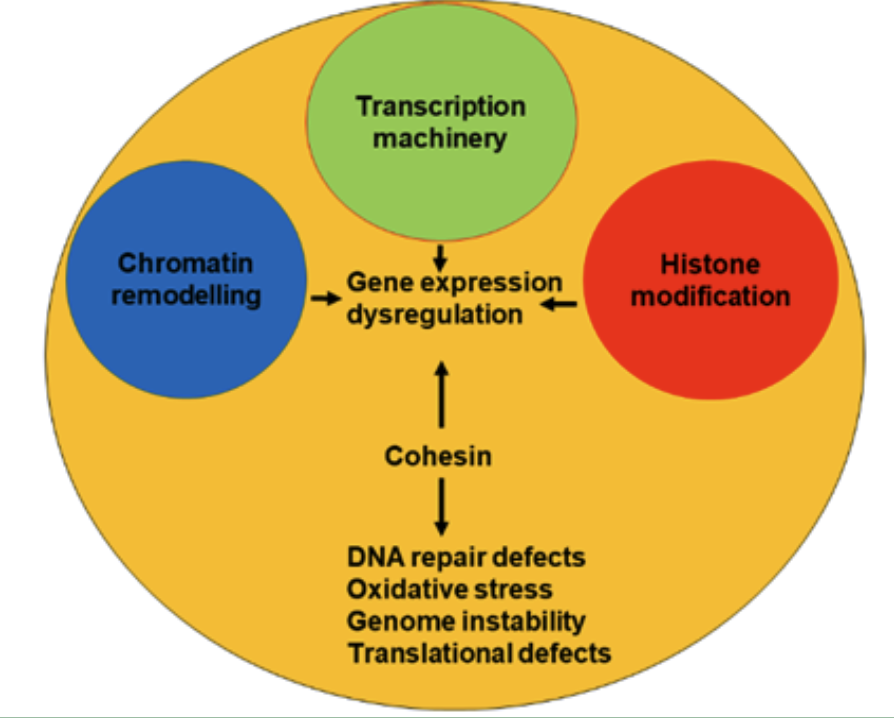
The Human Genome laboratory is focused on identifying and characterizing the molecular etiopathology of syndromic developmental disorders, such as Cornelia de Lange syndrome, Coffin-Siris syndrome, and Mosaic Variegated Aneuploidy syndrome. Toward this end, this laboratory has identified new disease genes and investigated the perturbed pathways in these diseases.
The lab is also interested in understanding the role of genomic instability and associated gene expression changes during cancer development. To this aim, we study models of human tumorigenesis and relevant mouse models with a variety of genomic technologies, including comparative genomic hybridization, gene expression profiling, quantitative real-time PCR and proteomic methodologies.
The Human Genome laboratory has a strong commitment to translate their basic research findings to improve early cancer detection, prognostication, and treatment.
RESEARCH TOPICS
We aim to explore phenotypic and molecular overlaps of various rare neurodevelopmental syndromes associated with abnormal cohesin activity and chromatin dynamics. Our specific goals are:
a) to advance basic and clinical research in disorders with disturbed chromatin dynamics;
b) to provide information and research results to families and professionals on these rare diseases to improve care and management of patients.
The main objective is to gain further insight into the role of the cohesin pathway in genome stability maintenance and cancer development. Specific aims are:
a) To investigate the effects of the down-regulation of SMC1A gene as therapeutic target against colon cancer development in in vivo;
b) To establish an interactome atlas of cohesin in human cancer cells;
c) To study the role of the cohesin pathway in genome instability, beyond that of cohesion.
STAFF

Antonio Musio
Senior Researcher